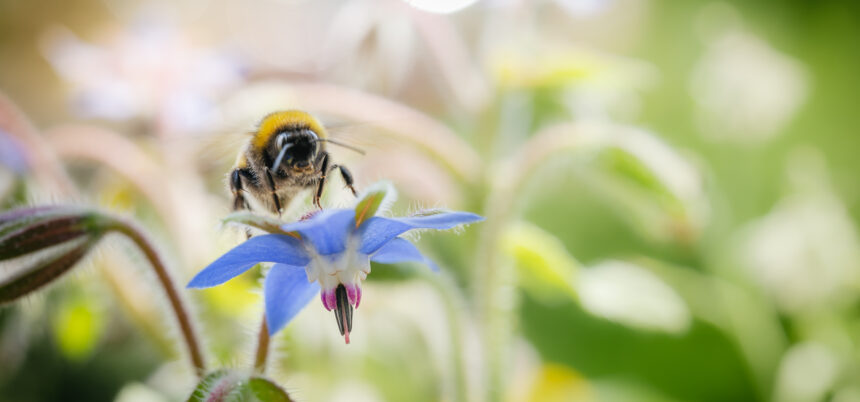As we walk through our own garden, we feel not only the beauty of colors and the diversity of shapes, but also the living rhythm of nature. From flying butterflies to buzzing bees, these little creatures have a vital importance in the ecosystem. You might be surprised to find that your own green corner has the potential to become a sanctuary for bees, these essential pollinators, whose number is declining. Read on to find out how the small choices you make can help save bees.
The role of bees in ecosystems
Pollenization is one of the most valuable benefits that bees bring to the surrounding environment. More than 70% of agricultural crops that provide most of the world’s food depend on pollination, a fact that highlights the importance of bee biodiversity. Inin recent years, they face massive threats such as habitat loss, varroa disease, pesticides and climate change. By planting certain types of flowers in your garden, you can help improve these problems by providing bees with food and shelter.
Select the right flowers
Choosing flowers that are friendly with bees is a vital first step. The native flowers of your region are always an excellent choice, because bees are already adapted to these species that offer them the nutrients they need. Among the most popular choices are lavender, sage, echinacea and balsamin. Plants with simple flowers, unlike those with double flowers, are also preferred by bees because they facilitate access to pollen and nectar.
Grouprie of flowers and colors
Bees are attracted by flower groups and certain colors – especially yellow and blue. Planting flower masses from these chromatic palettes, you will not only create an impressive visual effect, but you will also attract more bees. Also, the inclusion of a variety of flowers that bloom at different times of the year ensures a constant source of bees food, from the beginning of spring to late autumn.
Avoid pesticides
Some of the bees’ greatest enemies are pesticides. Using insecticides and herbicides, even on a small scale in your own garden, can have devastating effects on bees. Opts for organic solutions or gardening practices that promote plant health and reduce damage to plants.in natural methods, such as crop rotation, plants that support each other or use beneficial insects.
Awareness of your role in protecting bees
Besides creating a friendly environment for the beneficial insects in your garden, you can contribute to their conservation by supporting organisations and research focused on the health of bees. Stay up to date with the latest discoveries, participate in local events and campaigns, and promote the importance of early gardening and the benefits of bees.
In conclusion, when you work in your garden, you do not overlook the importance and needs of small flying creatures who work tirelessly for the sake of the ecosystem. Through each flower planted and every decision your consciousness contributes to a viitobetter for bees, but also for all of us!
